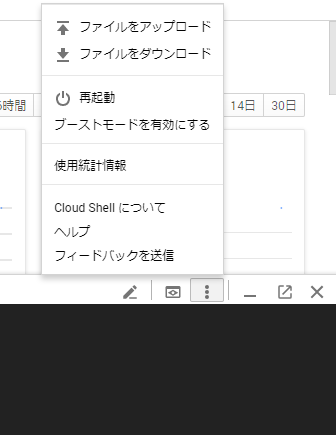カンファレンスやインタビュー音源を自動文字起こしする夢
2017年8月にAPIがアップデートされ、最長3時間までの音声が利用できるようになったため、
音声データ→txtファイル変換に挑戦してみました。
インタビューを取ったらすぐに自動書き起こしできるよう、環境は外出先でも使えるGCPのクラウドコンソールを使います。
環境・言語など
- Google Cloud Speech API
- Google Cloud Storage
- python
Speech APIを有効にする
以下URLを参考にSpeech APIを有効にします。
音声60分までは無料、その後は15秒ごとに0.6セント課金されますが、Google Cloud Platformを初めて使う場合は1年間有効な300ドルが付与されます(2017年8月現在)
https://cloud.google.com/speech/docs/getting-started
認証情報は、サービスアカウントキーファイル(JSON形式)で作成しておきます。
Google Cloud ShellでAPI認証する
Google Cloud Shellを立ち上げ、右上のあたりから、認証用のJSONファイルをアップロードします。
アップロードしたら、JSONファイルで認証します。
$ export GOOGLE_APPLICATION_CREDENTIALS=hogehoge.json
音声ファイルを作成
mp3やAACなどをそのまま利用することはできず、対応した形式に変換する必要があります。いろいろ試しましたが、以下の設定がおすすめです。
- FLAC
- モノラル
- 16000Hz
- 16bit
(参考:オンラインの変換サービス)
https://audio.online-convert.com/convert-to-flac
変換
FLACファイルを、Google Cloud Strageにアップロードします。
Google Cloud Strageの作り方はこちら
https://cloud.google.com/storage/docs/quickstart-console?hl=ja
pythonファイルは、シェルの方に直接アップロードしました。本業エンジニアではないので、チュートリアル見ながらゴニョゴニョ…
# !/usr/bin/env python
# coding: utf-8
import argparse
import io
import sys
import codecs
import datetime
import locale
def transcribe_gcs(gcs_uri):
from google.cloud import speech
from google.cloud.speech import enums
from google.cloud.speech import types
client = speech.SpeechClient()
audio = types.RecognitionAudio(uri=gcs_uri)
config = types.RecognitionConfig(
encoding=enums.RecognitionConfig.AudioEncoding.FLAC,
language_code='ja-JP')
operation = client.long_running_recognize(config, audio)
print('Waiting for operation to complete...')
operationResult = operation.result()
d = datetime.datetime.today()
today = d.strftime("%Y%m%d-%H%M%S")
fout = codecs.open('output{}.txt'.format(today), 'a', 'shift_jis')
for result in operationResult.results:
for alternative in result.alternatives:
fout.write(u'{}\n'.format(alternative.transcript))
fout.close()
if __name__ == '__main__':
parser = argparse.ArgumentParser(
description=__doc__,
formatter_class=argparse.RawDescriptionHelpFormatter)
parser.add_argument(
'path', help='GCS path for audio file to be recognized')
args = parser.parse_args()
transcribe_gcs(args.path)
最後に、以下を実行してしばらく待つと、変換が終了します。
$ python transcribe.py gs://バケット名/testmusic.flac
注意
- ファイルは最長3時間まで
- 1時間の音声書き起こしに、15分程度かかる
- 話し言葉なので、句読点は全くない(英語版は句読点を自動付与できるようになったらしいので、日本語版のリリースが待たれます)
- たまに「ヘルツ設定が違うよ」というエラーが出るので、その際はpythonファイルにサンプリングレートの値を設定してあげる
config = types.RecognitionConfig(
encoding=enums.RecognitionConfig.AudioEncoding.FLAC,
sample_rate_hertz=16000, #この行を追加
language_code='ja-JP')
- 久しぶりに利用しようとしたら、ImportError: cannot import name speech が出るようになったので、updateした
sudo pip install --upgrade google-cloud-speech
精度(所感)
精度に関係しないもの
- マイクの感度
- 話すスピード
- ノイズ
精度に関係するもの
- 話者の話し方(明瞭かどうか)
- 部屋の反響
部屋の反響は相当精度に影響するのが意外。空調の音等のノイズは、かなりうるさくても精度に影響しませんでした。分離しやすいのかもしれません。
